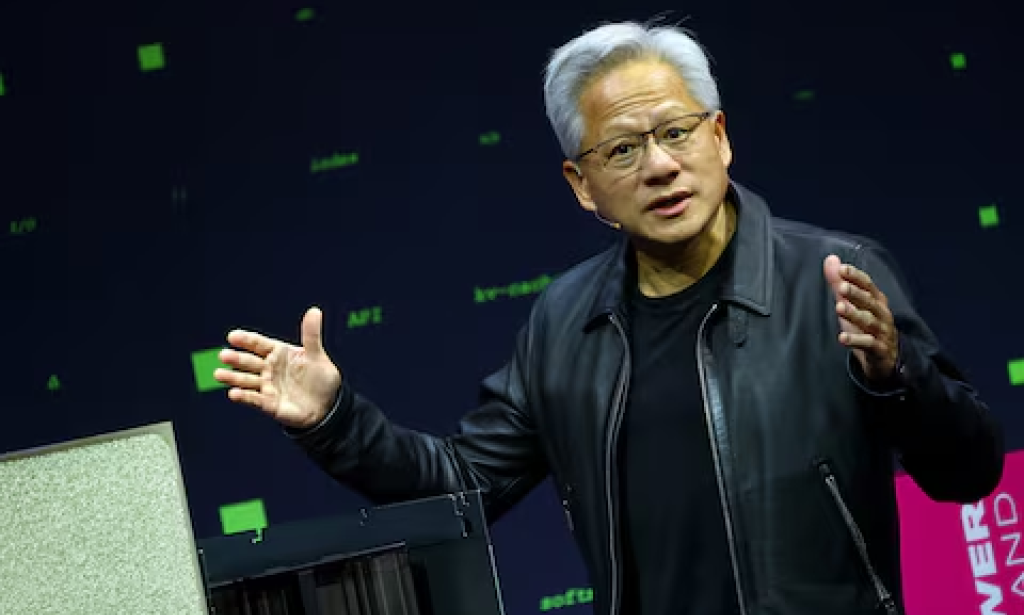HSINCHU, Taiwan, Nov 8 (Reuters) – Nvidia CEO Jensen Huang said on Saturday that the semiconductor leader is facing exceptionally strong demand for its cutting-edge Blackwell processors, as the company’s wafer requirements from TSMC (2330.TW) continue to rise.
“While Nvidia designs the GPU (graphics processing unit), we also produce CPUs, networking gear, and switches. Blackwell involves many different chips,” Huang explained to reporters at an event hosted by long-time partner Taiwan Semiconductor Manufacturing Co (TSMC) in Hsinchu.
TSMC CEO C.C. Wei confirmed that Huang had requested a significant number of wafers but declined to reveal the exact figures. “TSMC has been doing an excellent job supporting us,” Huang added during what was his fourth visit to Taiwan this year, emphasizing that Nvidia’s success wouldn’t be possible without TSMC’s support.
Nvidia achieved a milestone in October by becoming the first company to reach a $5 trillion market capitalization, prompting Wei to call Huang “the five-trillion-dollar man.”
Addressing questions about potential memory supply shortages, Huang acknowledged that rapid business expansion might lead to temporary bottlenecks. “We have three outstanding memory partners — SK Hynix, Samsung, and Micron — who have all ramped up capacity to meet our growing needs,” he said, noting that Nvidia has already received the most advanced chip samples from all three suppliers.
When asked about rising memory prices, Huang replied that “it’s up to them to decide how they manage their businesses.”
Last week, SK Hynix (000660.KS) announced that it had sold out all of next year’s chip production and would increase investment sharply, anticipating a prolonged AI-driven semiconductor boom.
Samsung Electronics (005930.KS) also said it was in active talks to supply its next-generation HBM4 (high-bandwidth memory) chips to Nvidia.
On Friday, Huang clarified that there were no ongoing discussions about selling Blackwell chips to China. Current U.S. export restrictions, introduced under the Trump administration, prohibit such sales on national security grounds, citing risks to China’s military and AI development.



You must be logged in to post a comment.